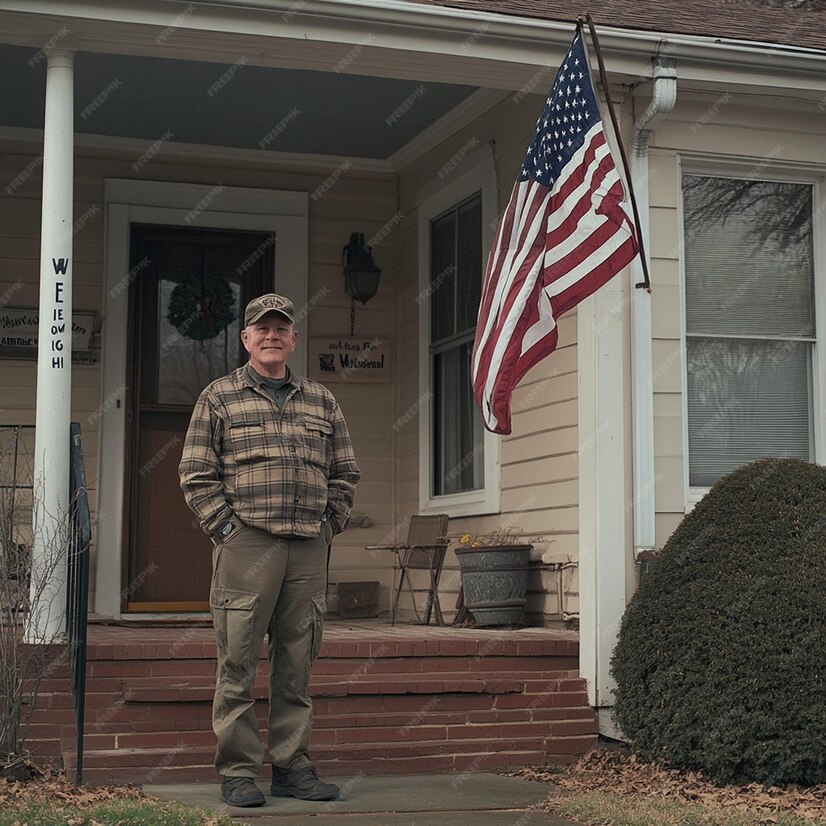
photo from Freepik.com
Many veterans consider homeownership a financial obligation and an important representation of the stability and security they have worked hard to ensure. However, the route to this hope involves specific hurdles, particularly within today’s highly competitive and ever-more-expensive housing sector.
This work investigates veterans’ financial challenges associated with house purchases and delivers solutions to help them better manage these issues.
Ways to Overcome Financial Challenges
Despite these hurdles, veterans have many strategies and resources as they work towards owning a home. These instruments and techniques make it possible for veterans to realize homeownership efficiently.
Handling Debt and Boosting Credit
Addressing current debts is generally the first important step toward buying a home. Veterans have a few options for this. Many nonprofit organizations deliver credit counseling services designed especially for veterans’ needs. Debt management could be critical for achieving top credit ratings through programs.
Veterans should also consider aVA debt consolidation loan. These selections can enhance payment and reduce interest rates, alleviating debt burdens. It’s best to work on high-interest debts initially while staying current with minimum payments on the other debts.
Credit report evaluations regularly are important. Veterans ought to make reviewing their credit reports every so often and fixing errors immediately routine behavior. This kind of ‘thinking ahead’ method can enhance credit scores, which is important for obtaining attractive mortgage options.
Using VA Loan Benefits
The VA loan program provides major benefits that veterans should fully use. Benefits include no down payment conditions for qualifying loans, an avoidance of private mortgage insurance (PMI), and favorable interest rates.
Veterans looking to get the most benefits should secure their Certificate of Eligibility at the outset of home buying. According to the VA, this document is essential for obtaining VA loan advantages. To improve efficiency, working with lenders that value VA loans is important since they are completely familiar with all the program details.
Veterans should take time to learn about the VA funding fee and the available exemptions. Foresight into these financial costs helps with your budget and financial plan as you advance in home buying.
Budgeting and Saving Methods
Managing homeownership costs requires effective budgeting. Military families can use various budgeting applications and resources made especially for them. These instruments can support constructing practical budgets and overseeing expenses effectively.
Making savings for emergencies and closing costs automatic can be a strategic move. Setting up automatic transfers to savings accounts can create an uninterrupted path toward financial goals without any continual manual input.
Veterans should review the opportunities provided by employer matching programs for retirement savings. Optimizing these benefits might allow them to earn more for housing expenditures while preserving their financial future.
Researching More Financial Assistance Programs
In addition to VA loans, veterans may have access to several other financial help programs. Various states provide housing plans for veterans that come with extra grants or low-interest loans. VA advantages can supplement these programs, enhancing accessibility to homeownership.
Many localities offer down payment assistance programs that benefit veterans. Moreover, a number of lenders have customized mortgage products suited to veterans’ particular needs. Examining these options may lead to newly discovered approaches to financing a home buy.
Education and Counseling
Knowledge functions as a strong advantage during the home-buying process. To help veterans succeed in homeownership, free homebuyer education courses are available, many of which are uniquely designed for them. These programs offer key understandings of the home-buying experience and money management.
One-on-one counseling can provide specialized direction under the guidance of housing professionals certified by the U.S. Department of Housing and Urban Development (HUD). Having these experts around to help veterans with housing market complexities can lead to better decision-making.
It is also important to understand market trends and the prices of owning a home in their intended locations. Veterans can better decide when and where to purchase through this enduring education.
Getting a Handle on the State of the Current Housing Market
The U.S. housing market has recently known remarkable growth, with home values escalating dramatically and inventory still low in several regions. Transitioning veterans may find the trials of managing service debts and the finer points of VA loan procedures quite intimidating during these market conditions.
Understanding the System
Over the last few years, the U.S. housing sector has shown remarkable growth, with substantial rises in home values and restricted stock supplies in several areas.
Dealing with the change to life beyond the military, sorting through service debts, or understanding the complicated VA loan system may make market trends particularly challenging for veterans.
Key Challenges Veterans Face
On their path to homeownership, veterans encounter several uncommon obstacles. Many people who complete their service are under the weight of substantial debt, including student loans, credit card balances, or personal loans borrowed during deployments. These existing sources of financial obligation can strongly affect their debt-to-income ratio, which is a key element in the approval of mortgages.
Yet another challenge caused by credit scores is the character of military service, which may involve occasional deployments and often requires relocation. It’s possible to miss payments or see mistakes in credit reports. These problems can reduce credit ratings, making it tougher to achieve appealing loan terms.
Income checks impose an additional level of complexity. In transitioning to civilian professions, veterans may struggle to exhibit the typical long-term income history banks look for. This can make the mortgage application process more challenging and decrease their alternatives.
While VA loans benefit veterans from no down payment, they still struggle with the need to accumulate cash for closing costs and create an emergency fund. Building financial preparation is important but cumbersome, especially for those just starting their civilian careers.
Finally, although providing multiple advantages, obtaining a VA loan has specific rules and prerequisites. This can be perplexing, particularly for those purchasing a home for the first time and unfamiliar with the real estate environment.
Looking to the Future
With the growth in the real estate industry, policymakers and financial institutions need to recognize and address the unique obstacles veterans encounter when pursuing homeownership. Currently, it’s important to strengthen financial education programs for service members to help them better prepare for buying a home when that time comes.
This effort aims to ease the VA loan approval process and guarantee resources to help veteran buyers thrive in rapidly altering market landscapes. It also covers expanding financial support for programs that provide down payment assistance to veterans.
Conclusion
Today’s market introduces challenges for veterans striving to own a home, but homeownership remains doable. Awareness of obstacles, use of available resources, and application of proactive financial methods help veterans truly make homeownership a reality.
For the trip, one needs patience, careful thought, and the ability to endure—qualities that vets exemplified while in active service.
Thinking of veterans in their journey for secure and economical housing as a way to thank them for their efforts is important. Still, it also represents a critical investment in how durable and stable our communities become.
Our aim in working to improve and broaden veteran homeownership programs is to demonstrate our thanks for their sacrifices and help them during their successful transition from military to civilian life.





